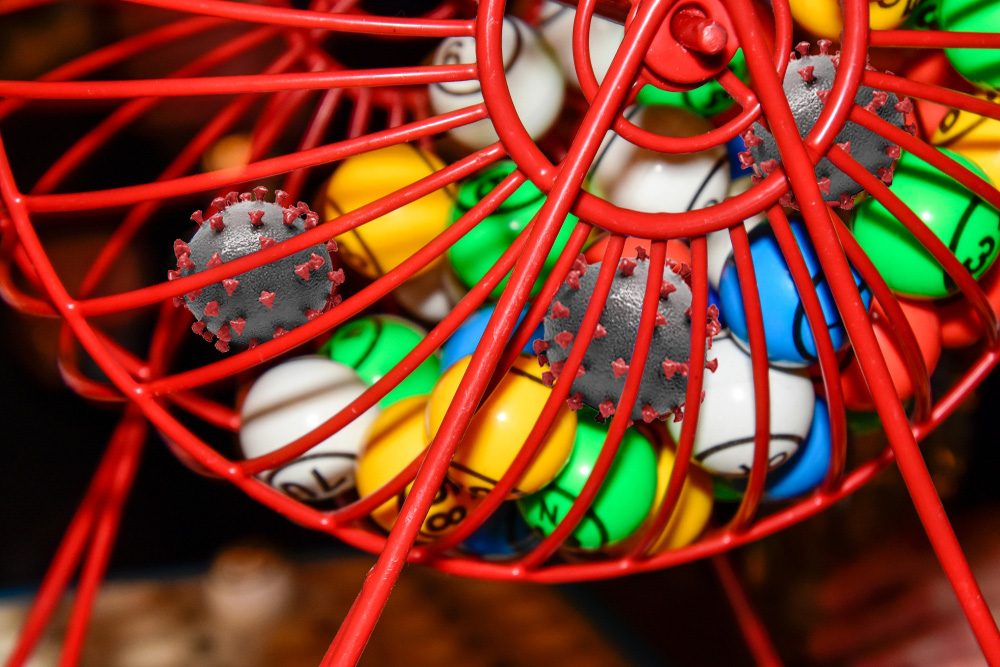Compiled by veteran medical journalist Brian Owens, this roundup of some of the newest science on the COVID-19 pandemic, straight from the scientific journals, is presented by Hakai Magazine in partnership with The Tyee.
Border controls and traveller quarantine essential for curbing pandemics
Border controls that restrict entry and mandatory quarantine for arriving travellers are among the best strategies for controlling a pandemic like COVID-19 early on, according to a review of existing research on infection control. Also important are comprehensive contact tracing, repeated testing to rule out false results, the use of apps and GPS data to support contact tracing and self-isolation, and financial support for those affected.
Instruments are safer than singing
Playing wind instruments generates fewer aerosols than speaking or singing, according to new research. The amount of aerosols generated while playing woodwind and brass instruments is similar to that produced by breathing, based on measurements of several musicians playing the flute, piccolo, clarinet, trumpet, trombone and tuba. The aerosol concentrations generated by instruments were lower than those associated with vocalizing at high volume. The findings could help to inform plans to lift COVID-19 restrictions in the performing arts.
Aerosol Science and Technology, June 29, 2021
Rare cases of heart inflammation reported after mRNA vaccines
A small number of cases of inflammation of the heart, known as myocarditis, have been reported among mostly younger men a few days after they received their second dose of either the Pfizer-BioNTech or Moderna mRNA vaccines. Their symptoms include severe chest pain. All patients recovered quickly, and the researchers stress that the risk of severe illness — including heart inflammation — from COVID-19 is much greater than any risk from the vaccines.
JAMA Cardiology, June 29, 2021 (1)
JAMA Cardiology, June 29, 2021 (2)
Europe’s second wave was driven by new introductions from travel
The second wave of COVID-19 that hit Europe at the end of last summer was largely driven by new lineages of the virus introduced by travel. Researchers found that in the majority of European countries studied, more than half of the viral lineages circulating at the end of the summer resulted from infections newly introduced from other countries after mid-June. These new lineages were especially successful at starting new outbreaks in countries, such as the U.K., that had relatively low numbers of infections throughout the summer.
Most people don’t have a plan if they test positive
Even if you do not become seriously ill, a positive COVID-19 test is a highly disruptive event that requires careful planning to manage. Where will you isolate? Do you have PPE for your family? Who should you notify of your diagnosis? A survey by researchers in the United States in the early stages of the pandemic found that 96 per cent of healthy, educated adults did not have a comprehensive plan in mind, and 62 per cent had no plan at all.
Journal of Clinical and Experimental Neuropsychology, June 18, 2021
Lotteries don’t help increase vaccine uptake
Lotteries like the one offered in Alberta to encourage people to get their COVID-19 vaccine do not appear to be an effective way of boosting vaccination rates. A study of Ohio’s “Vax-a-Million” lottery-based incentive system found that it was not associated with an increase in COVID-19 vaccinations compared with other states that did not have lotteries. The resources devoted to vaccine lotteries, researchers say, may be more successfully invested in programs that target underlying reasons for vaccine hesitancy and low vaccine uptake.
People didn’t reschedule missed appointments
Many patients who cancelled doctor’s visits and hospital procedures early in the COVID-19 pandemic didn’t reschedule once appointments were available again, and it proved difficult to reverse that trend. Researchers found that a single message targeted directly to these patients encouraging them to reschedule didn’t affect the return to in-person visits within a month, but it did result in a small increase in re-engagement through telemedicine and rescheduling of future visits.
JAMA Network Open, June 30, 2021

Epsilon variant may resist antibodies
The Epsilon variant, first identified in California, has three mutations in its spike protein that provide it with resistance to virus-neutralizing antibodies generated either by vaccination with an mRNA vaccine or by natural infection. The mutations made the antibodies between 2 and 3.5 times less effective, with antibodies from natural infections less effective than those from vaccination.
Pandemic has worsened antibiotic misuse in India
During India’s first surge of COVID-19, antibiotic sales soared, suggesting the drugs were inappropriately used to treat mild and moderate cases of COVID-19. This use is a problem for two reasons: it is ineffective because antibiotics only work against bacterial infections, not viral infections such as COVID-19; and overuse of antibiotics increases the risk of bacteria developing resistance to the drugs.
Immunity lasts at least a year
One year after infection by SARS-CoV-2, most people maintain anti-spike antibodies regardless of the severity of their symptoms, according to a study of health-care workers who were infected early in the pandemic. Researchers took regular blood samples from people who had recovered from COVID-19, finding no significant decay in antibody levels over the first five months. Over 96 per cent of people still had antibodies after a year even if they had not yet been vaccinated.
Read more: Coronavirus, Science + Tech
















Tyee Commenting Guidelines
Comments that violate guidelines risk being deleted, and violations may result in a temporary or permanent user ban. Maintain the spirit of good conversation to stay in the discussion.
*Please note The Tyee is not a forum for spreading misinformation about COVID-19, denying its existence or minimizing its risk to public health.
Do:
Do not: